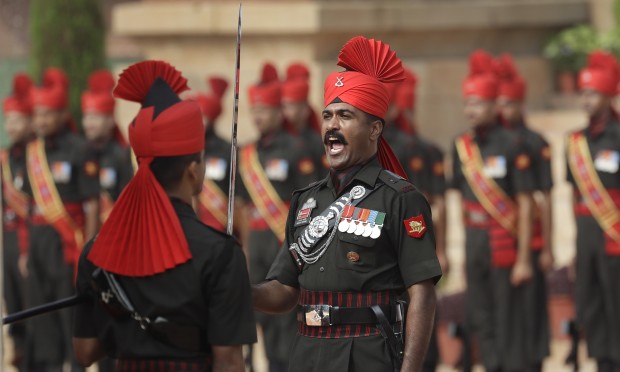India Shares Independence Day with South Korea
Neelima MATHUR – Asia Journalist Association (AJA)
That India and South Korea share their Independence Day is not a coincidence. Lord Mountbatten was the Supreme Allied Commander of South-East Asia Command. Japan was bombed and then decided to surrender in 1945, towards the end of World War II. It was Mountbatten who accepted the Japanese surrender in Singapore on August 15 that made Korea free from Japanese colonial rule. Two years later, in 1947, when a date had to be decided for the British to leave India, Mountbatten chose the same date, August 15.
India truly became independent two days later, that too at a great cost. While a fifth of humanity was to be freed, the nation was also to be divided. The papers for the boundaries were readied in record time before August 15. Even so, on that day the people of Punjab, though technically free from British rule, did not know if they were citizens of India or Pakistan. Mountbatten refused to publish the Boundary Award until August 17, 1947. This was a way to absolve Britain of the blame for the panic-driven violence that was bound to ensue. Forever then, the partition of India and the deaths that followed, were marked down as a historical matter of two hostile governments. The partition deaths are never directly linked to the British Raj.
Later, in a peculiar development, Pakistan changed its Independence Day from August 15 to August 14. Though the first postage stamps of Pakistan declared August 15 as Independence Day, this changed within a year. The reasons are unknown but many postulates on them. Some say it was because Mountbatten delivered the King’s Message of Independence in Karachi on August 14. Others say it is because August 14 was the 27th day of Ramazan, a very holy day in Islam. Whatever the reason, this can make history confusing in the distant future. How could Pakistan have become independent a day earlier than India!
Independence was not total freedom for India. It remained a dominion (constitutional monarchy) of Britain with King George VI as the head of the state. Australia and Canada still have that status! India abolished the monarchy and became a republic on January 26, 1950, which is celebrated with much fanfare as Republic Day. Pakistan continued to have dominion status until 1956, so when Queen Elizabeth was sworn in she was also termed as Queen of Pakistan.
The seeds of colonial hangover that persist in India even after nearly 70 years, were visible at the time of Independence. While people were massacring each other on the India-Pakistan border, thousands were cheering at the departure of Mountbatten and his men in Mumbai. Slogans of England Zindabad and Jai England (Indian terms for hailing England) were heard in a loud chorus as the rulers of the day before departed.
Globally, the biggest quoted fact about India’s independence is non-violence. Leader after leader, nation after nation, cite India’s non-violent movement. And of course, in the same breath comes the name of Mohandas Karamchand Gandhi. Few may know, though, that the non-violence that Gandhi is identified with was, in fact, was inspired by a leader several decades before. In the early 1900s, Gopal Krishna Gokhale espoused non-violence and dialogue as the path to India’s freedom from the British. Gokhale was a moderate and early nationalist, whose importance has been dimmed in India’s history. He influenced both Gandhi and Mohammed Ali Jinnah, the tall Pakistani leader and its first Governor-General. Gandhi first heard about Gokhale in South Africa through his writings. Later, Gokhale gave much personal guidance to Gandhi, for whom he remained a role model for his work against apartheid in South Africa and later in the freedom movement in India.
So many decades later, as India celebrates its Independence, it is still tied in chains. True freedom of the people from poverty and all that goes with it is still a long way away. That is the real sad story of India’s independence.
























































